By Jeff Field | Published January 23, 2024 | Posted in Bankruptcy | Tagged Tags: adversary proceeding, debt idscharge, preferential transfers | Leave a comment
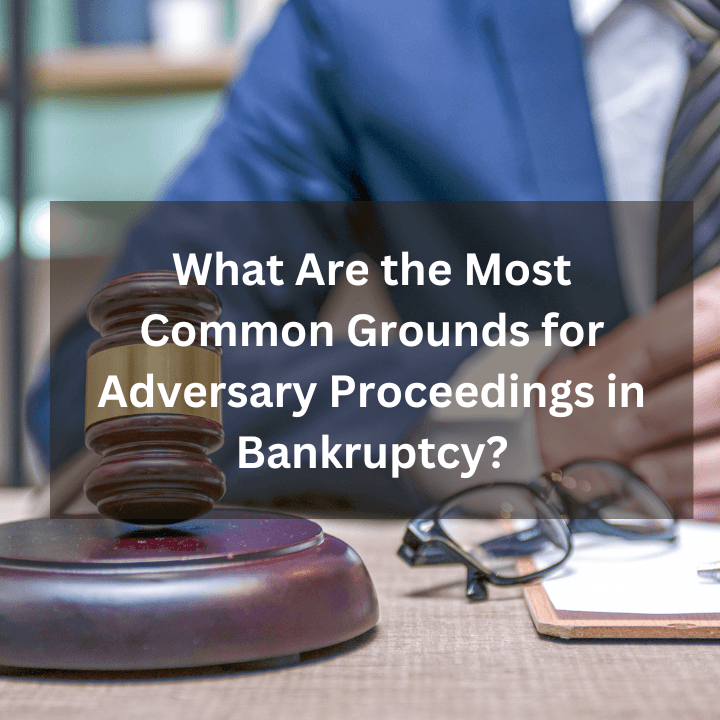
What Are the Most Common Grounds for Adversary Proceedings in Bankruptcy?
Bankruptcy proceedings serve as a legal mechanism for debtors to obtain relief from overwhelming financial obligations, allowing them to reorganize their debts or liquidate their assets for the benefit of creditors. Ideally, a bankruptcy case proceeds without contention, but when disagreements arise, the bankruptcy code provides a forum for resolving them, known as an adversary Read More
Read More
Using the Redemption Option to Keep Your Car in a Chapter 7 Bankruptcy
Chapter 7 bankruptcy allows individuals to obtain a fresh start by discharging most of their debts while liquidating their assets to pay off creditors. However, there are ways that debtors can shield a substantial amount of their assets from liquidation. One of these is the redemption option. A debtor can keep a financed car by Read More
Read More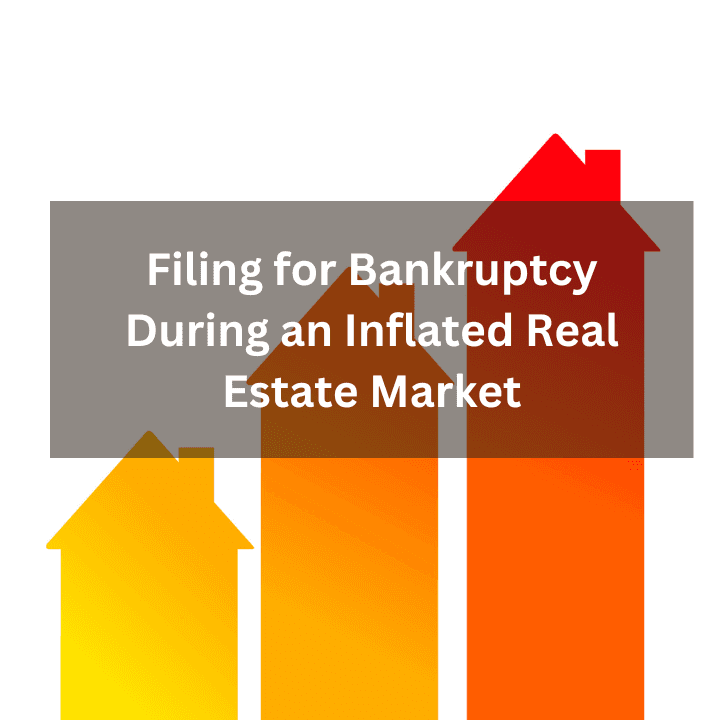
Filing for Bankruptcy During an Inflated Real Estate Market
Home prices in Georgia and across the country rose steadily through 2023 and show no signs of abating, despite a surge in mortgage interest rates. This is due to a shortage of housing inventory caused in large part by older Americans buying up properties, many for investment purposes. But whatever the reasons, an inflated residential Read More
Read More
Should Married People File for Bankruptcy Jointly or Individually?
Married people who are in financial straits have the option of filing jointly for bankruptcy, but that doesn’t always mean they should. Since assets and expenses are often shared in a marriage, it’s common for the money troubles of one spouse to impact the other. But sometimes one spouse has more property and the other Read More
Read More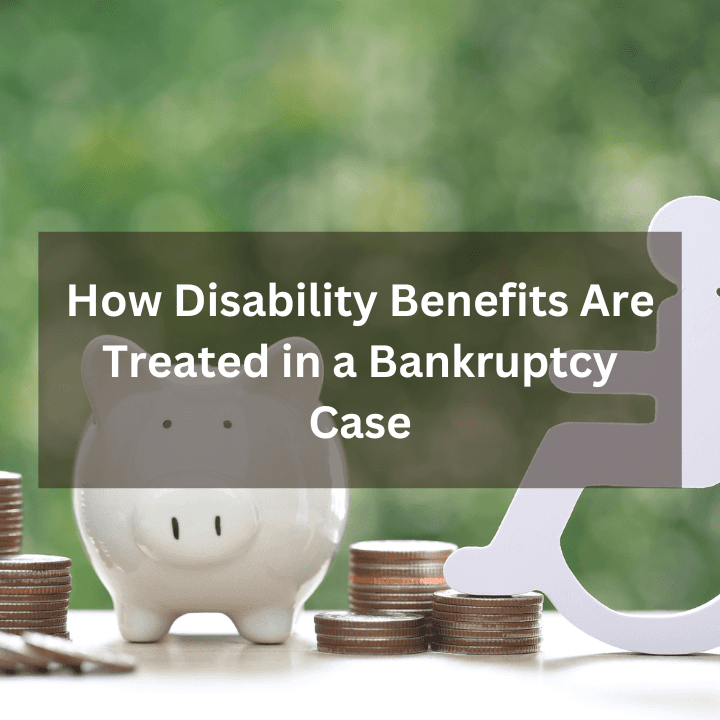
How Disability Benefits Are Treated in a Bankruptcy Case
If you are considering filing for bankruptcy and are on disability, you may be concerned about how the case will affect the benefits you are receiving. Although they are deemed assets under bankruptcy law, disability benefits are generally protected from creditors by being covered by state and/or federal exemptions. However, having these benefits as part Read More
Read More
Calculating Your Monthly Payment in a Chapter 13 Plan
A Chapter 13 bankruptcy, also known as a wage earner’s plan, helps you get out of debt trouble through a court-supervised repayment schedule. The most beneficial aspect of this remedy is that you can significantly reduce your total debt while being granted several years to pay it off monthly. During this time, creditors are barred Read More
Read More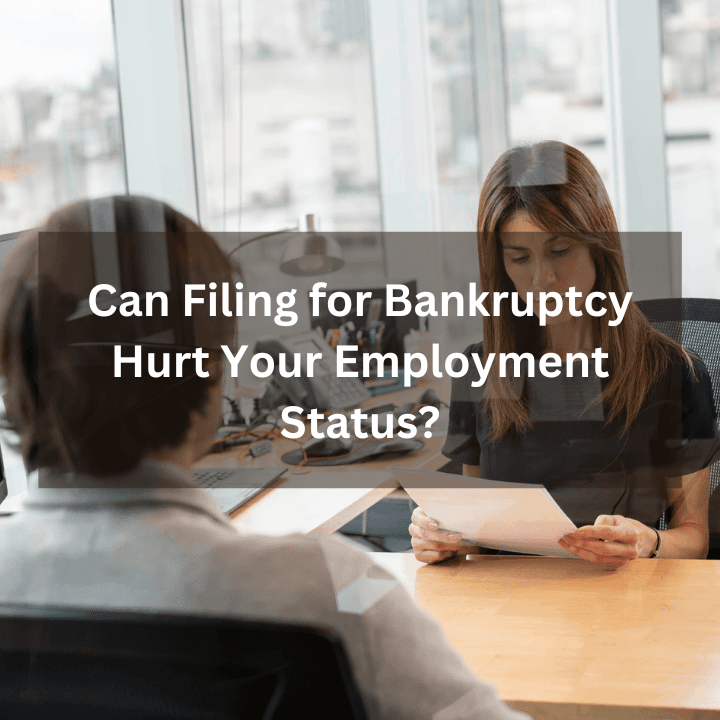
Can Filing for Bankruptcy Hurt Your Employment Status?
Deciding to file for bankruptcy is a significant event that you may fear will affect your life in multiple ways. Among your likely concerns is the potential impact of bankruptcy on your present employment status and future job prospects. However, there is less reason to worry than you might think. Generally, a personal bankruptcy should Read More
Read More
Dealing With Discharge of Debts Based on Willful and Malicious Injury
Bankruptcy provides individuals and businesses with a fresh financial start by discharging or eliminating their debts. However, not all debts are eligible for discharge. One category of non-dischargeable debts are those stemming from willful and malicious injury. Creditors can challenge the discharge of such debts through an adversary proceeding, at which debtors can raise defenses Read More
Read More
7 Common Pitfalls in Meeting the Chapter 7 Means Test
When individuals struggling with overwhelming debt decide to file for Chapter 7 bankruptcy, they must usually pass the means test. This is the government’s method of determining whether the debtor actually has sufficient income to repay creditors, at least partially. The means test can be a formidable hurdle to establishing eligibility for bankruptcy relief. The Read More
Read More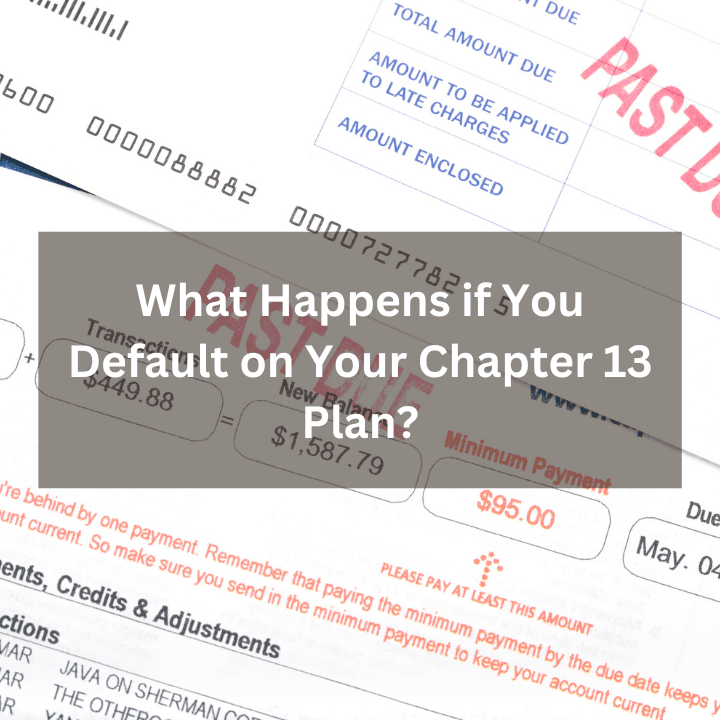
What Happens if You Default on Your Chapter 13 Plan?
A Chapter 13 bankruptcy can be an effective way to bring debt under control while preserving your most important assets. It allows you to structure a plan for repaying a portion of your debt over a three- to five-year period, with the rest being discharged afterward. However, financial difficulties encountered during the life of the Read More
Read More- April 2024
- March 2024
- February 2024
- January 2024
- December 2023
- November 2023
- October 2023
- September 2023
- August 2023
- July 2023
- June 2023
- May 2023
- April 2023
- March 2023
- February 2023
- January 2023
- December 2022
- November 2022
- October 2022
- September 2022
- August 2022
- July 2022
- June 2022
- May 2022
- April 2022
- March 2022
- February 2022
- January 2022
- December 2021
- November 2021
- October 2021
- September 2021
- August 2021
- July 2021
- June 2021
- May 2021
- April 2021
- February 2021
- January 2021
- December 2020
- November 2020
- October 2020
- September 2020
- August 2020
- July 2020
- June 2020
- May 2020
- April 2020
- March 2020
- February 2020
- January 2020
- December 2019
- November 2019
- October 2019
- September 2019
- August 2019
- July 2019
- June 2019
- May 2019
- April 2019
- March 2019
- February 2019
- January 2019
- December 2018
- November 2018
- October 2018
- June 2017
- May 2017
- May 2016
- April 2016
- March 2016
- February 2016
- January 2016
- December 2015
- October 2015
- September 2015
- August 2015
- July 2015
- June 2015
- January 2015
- July 2014
- May 2014
- April 2014
- March 2014
- February 2014
- January 2014
- September 2013
- August 2013
- July 2013
- April 2013
Please fill out the form below and one of our attorneys will contact you.


